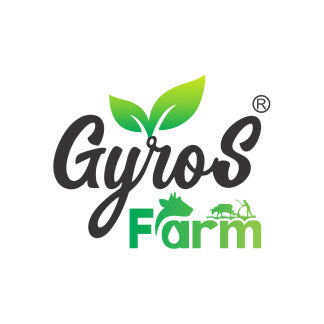Are you thinking about the new buzz about cold-pressed oil nowadays in the market?
Well, sometimes I might irritate you as well. People randomly spread half information, virgin and extra virgin olive oil is healthy, and now they say it's not suitable.
Earlier, people said mustard oil is good; now they say it's questionable. I was a less aware person once, so I get your frustration, which is pretty obvious!
Extra virgin olive oil is ideal, but not for Indian cooking that involves high heat.
Common oils like Mustard, Sesame, Castor, Almond, Groundnut, etc, are healthy but only if it is wood or stone cold-pressed!
But what is cold-pressed oil? Let's check the details!
Cold-pressed Oil Meaning
When oils are extracted from nuts or seeds without any external agent like heat or chemical solvents, it is known as cold-pressed oils. Thus, it gets its name.
Moreover, some heat is generated during the process if done, but that is subtle. Good companies always ensure that it remains 49 °C, which is below room temperature, for it to be cold-pressed.
Also, the oils are extracted in such a way that they retain their original nutrients, flavour, and aroma.
Other processes, and subjecting them to heat or chemicals, destroy the antioxidants, enzymes, and nutrients, and can even make them harmful. Thus, cold-pressed oils are considered natural for consumption.
History of Cold-Pressed Oil
Earlier, the health of people was quite upto the mark, and oil didn't affect them much. Do you know why?
Well, oils earlier were less adulterated and were extracted by natural methods. Did you know that even the Indus Valley Civilisation people used it?
During excavation at the ruins of Harappa, charred sesame seeds and oil-pressing machines were discovered on the site. These weren't those that are used today, but ones used in earlier times, like Chekku, Kolhu, and Ghani, to be precise.
Further, studies suggested that they were nearly 5000 years old. Even back then, a long cylindrical instrument called a ghani was used to extract oil from oilseeds.
As per the book of K.T. Achaya, A Historical Dictionary of Indian Food, suggests that ‘ghani’ was a mortar and pestle of stone or wood to crush nuts or oilseeds to extract oil.
But now most extract it with the instrument, yet mechanically by suggesting it to various agents, which makes it not true cold-pressed oil.
Difference Between Cold-Pressed and Hot-Pressed Oil
As per the discussion above, cold-pressed oil is the one in which the seeds/nuts are crushed slowly to extract oil from them naturally. This is done to retain the nutrients and flavours.
In comparison, hot-pressed oil is the one that is sold at affordable prices and we commonly use.
It is extracted by subjecting the oil to high heat upto 200°C and chemical solvents. Hence, it loses most of the nutrients, flavours, and becomes harmful to health due to unhealthy fats.
Benefits of Cold-Pressed Oil
Cold-pressed oils, due to their method of extraction, have various benefits compared to hot-pressed and refined oils.
Below is a list of the same:
-
Has rich levels of antioxidants: Antioxidants play a crucial role in eliminating harmful toxins and free radicals from the body. Thus, its consumption in foods will help you prevent diseases and ensure that your immune system is healthy.
-
Low in Saturated (Unhealthy) Fats: Saturated fats increase the risk of heart disease, stroke, and related health issues. Thus, they are a healthier option than most other oils.
-
Have Higher Polyunsaturated Fatty Acids (PUFAs): PUFAs are essential to maintain brain function, heart and skin health, etc. They are not present in abundance in common cooking oils.
Final Words
Oil is one of the most used ingredients in Indian kitchens, and you can't eliminate it. Zero-oil cooking is just a myth and keeps your body devoid of essential nutrients, plus doing so is not feasible. Hence, choosing the correct oil is necessary.
The majority of the brands nowadays adulterate it with palmolein oil, harmful chemicals, or are subject to higher temperatures. Even some use expeller methods for cold-pressed oils, which aren't that effective and have downsides.
Here's where we at Gyros Farm have collaborated with local farmers, adopted their farms, and accordingly ensured an organic production of nuts and seeds.
Further, we use a stone or wood press and extract it manually at room temperature. The seeds/nuts are singly extracted for oils and aren't repeated in the process.
To ensure optimum quality and that we meet our goals, all our stone and wood-press oils are thoroughly tested during the subsequent phases.
So, what stops you from chasing your health? Prioritise health now and buy cold-pressed oils now!


